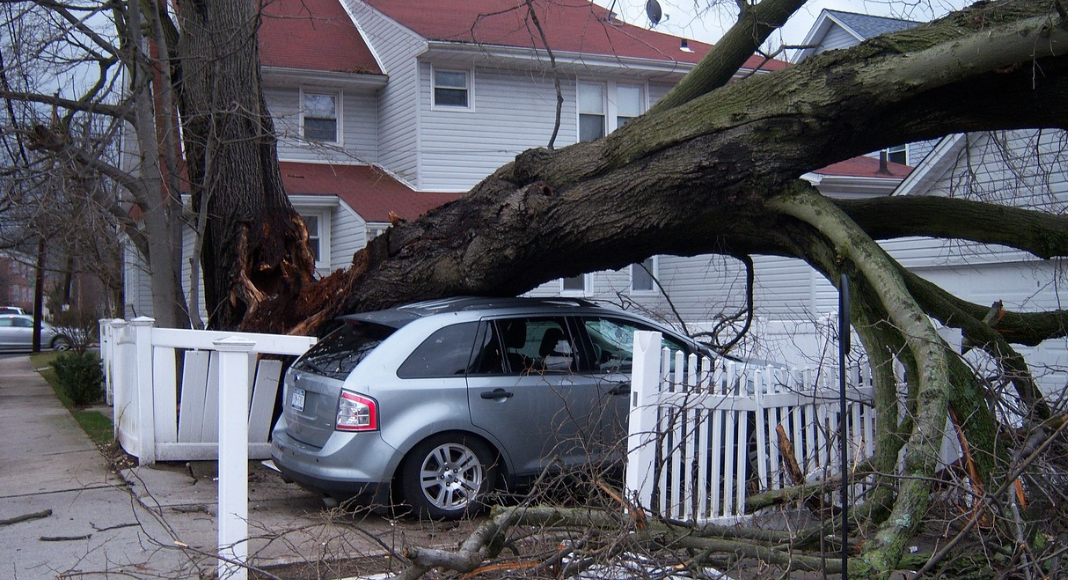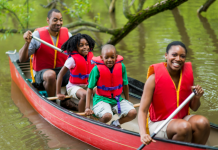 Last Monday, we experienced the first EF2 magnitude tornado in Knoxville in the month of August since 1950. It was a terrifying experience, especially for those hardest hit by the storm, and if you’ve been paying attention to media outlets and social media, you’ve likely seen the images of devastation this storm caused and the wreckage left in its path.
Last Monday, we experienced the first EF2 magnitude tornado in Knoxville in the month of August since 1950. It was a terrifying experience, especially for those hardest hit by the storm, and if you’ve been paying attention to media outlets and social media, you’ve likely seen the images of devastation this storm caused and the wreckage left in its path.
In light of that, I want to share some practical ways to help out when disaster strikes.
Tennessee is known as the Volunteer State, and I’ve watched many, many people come together in our local community to help one another out when something terrible happens. I’ve recently seen a few people I know personally experience damage to their homes and property from the stormy weather we’ve experienced, and it prompted me to start asking what ways I and others can offer help to family, friends, and neighbors in their times of need.
The first thing everyone seems to gravitate toward is offering resources to displaced persons, usually resources in the form of links or phone numbers to relief efforts, disaster teams, and other volunteer organizations that can muster large groups of people in relatively short order. I think that’s an excellent place to start, and those groups are very, very needed when things go sideways. I know Knox County has a number of different resources that have been shared on social media and through the news for people who need help with damaged property and finding temporary housing. I also think those organizations are great places to volunteer if you have the time and means to do so.
Another great step that comes right after the resource offers is the ubiquitous question: “What can I do to help?” I’m sure any person who’s dealing with a disaster is grateful for the offers of help, but I think it helps to be specific instead of general. Sometimes a loss is so overwhelming that, despite knowing they need help, people are unable to pinpoint specifics that people can help with.
So here are a few suggestions of things that might be more helpful than simply asking the general question:
If you have immediate tools and are handy, chip in with the clean-up and repairs where you can. We saw trees across roads and on top of buildings, things blown clear out of their yards, and all manner of debris ripped off its rightful place to be deposited wherever the wind blew. An easy way to help is to be the one to start the clean-up process by bringing in tools like garbage bags, boxes, even chainsaws to help get things back to rights.
Do you have access to a truck or even a trailer of some sort? The sheer amount of debris and trash that accumulates from storm damage requires some method of hauling it off, and volunteering to help the removal effort can give people some relief from having to rent out dumpsters or vehicles. You can bring your vehicle or trailer over and put on some gloves to help remove some of the larger trash so people can begin to assess the true damage to their homes.
If you know someone who’s been displaced and you have the space, you could always set up a guest room for people who need it until they can find temporary housing. Another option is to take food to homes or hotels where people have landed to try and offset some of the immediate burden they’re experiencing. Buy some gift cards for dinners and breakfasts so they can get out for a little bit without a constant reminder of their situation.
Be the driver for a friend in need. Perhaps they’ve lost a car or their vehicle is filled with too many of their salvaged possessions. Offer to drive them around on errands and allow them a break from trying to tackle all the different things involved in securing aid from insurance and local organizations. It’s exhausting trying to keep track of all the different parties you need in order to start the salvage and rebuilding process, and sometimes just having someone around to help you get places while you’re on the phone can take a load off.
Step in and help with the physical labor where you can. I realize in some cases this isn’t feasible for different reasons, but if you can offer help with trying to salvage undamaged possessions, shopping for immediate needs, or moving someone into temporary housing, it can be a huge help in what feels like an incredibly overwhelming situation.
Last but not least, be the emotional support someone needs. Maybe that means you take a friend out for a meal and offer a shoulder to cry on. Maybe you bring over flowers or something comforting like a cozy blanket and calming candle for their temporary housing. It could be simply letting them know you’re available to listen and being a friend when times are tough. Whatever you do, offering emotional support and even trying to help find professional resources if someone is suffering from trauma-related issues after a loss can make a huge difference.
I hope these ideas have inspired you and given you some food for thought on ways you can help in the event of a disaster. Insurance, local organizations, and disaster relief teams are all important pieces of the relief effort, but neighbors and friends can have a huge impact on how quickly people begin to feel like things are getting “back to normal.”


















